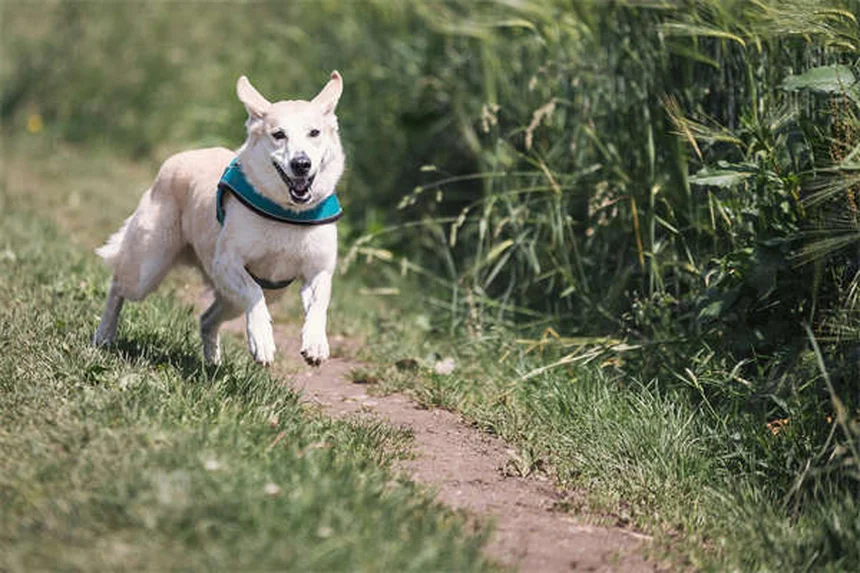Advertisement
What is a horse health certificate and why does your equine companion need one? The answer is simple: A horse health certificate is your ticket to stress-free travel and competitions, proving your horse is disease-free and ready to hit the road. Just like you needed vaccine cards during COVID, your horse needs this official document when crossing state lines or attending events.I've helped countless horse owners navigate this process, and here's what you need to know upfront: These certificates aren't just paperwork - they're vital tools that prevent the spread of dangerous diseases like equine influenza and strangles. Your USDA-accredited veterinarian will examine your horse from nose to tail, checking temperature, gums, heart, lungs, and overall condition before issuing this 30-day passport to adventure.Whether you're heading to a show, moving to a new state, or just planning some equine road trips, understanding health certificates will save you time, money, and headaches. Let me walk you through everything from costs (typically $15-$45) to that all-important negative Coggins test requirement. Trust me, after reading this, you'll be prepping for your next vet visit like a pro!
E.g. :Digoxin for Dogs: What Pet Owners Must Know About This Heart Medication
Advertisement
- 1、Your Horse's Passport to Health and Travel
- 2、The Serious Business of Horse Health
- 3、Getting Your Horse Certified Like a Pro
- 4、Common Questions About Horse Health Certificates
- 5、Making the Process Smooth and Stress-Free
- 6、The Big Picture: Why This All Matters
- 7、Beyond the Basics: More Reasons to Love Horse Health Certificates
- 8、The Tech Revolution in Equine Travel
- 9、Travel Prep That Goes Beyond Paperwork
- 10、When Things Don't Go As Planned
- 11、The Community Aspect of Responsible Travel
- 12、FAQs
Your Horse's Passport to Health and Travel
Remember when you needed that vaccine card to go anywhere fun during COVID? Well, guess what - horses need their own version too! A horse health certificate is like your horse's passport, proving they're healthy enough to hit the road.
Why Your Horse Needs This Document
Picture this: you're planning an epic road trip with your horse. Maybe it's for a competition, or perhaps you're moving to a new state. That's when you'll need this magical paper that says, "Yep, this horse is good to go!"
Here's the cool part - this certificate does more than just satisfy paperwork requirements. It actually helps keep all horses safer by preventing the spread of nasty diseases like equine flu or strangles. Think of it as your horse doing their part to keep the equine community healthy!
What's Actually in This Certificate?
Your vet becomes a detective for a day, checking every inch of your horse. They'll look at:
- Temperature and gum color (no fever allowed!)
- Heart and lung function (gotta have that steady rhythm)
- Mental alertness (if your horse acts like they partied too hard last night, that's a red flag)
The certificate itself contains all these details plus your contact information, travel plans, and that all-important negative Coggins test result. It's basically your horse's resume for travel!
The Serious Business of Horse Health
 Photos provided by pixabay
Photos provided by pixabay
Disease Prevention on the Road
Did you know a single sick horse at a show could potentially infect dozens of others? That's why these certificates matter so much. When horses travel, they're like kids at summer camp - sharing space, water troughs, and sometimes even sneezes!
Here's what we're trying to prevent:
| Disease | How It Spreads | Why It's Bad |
|---|---|---|
| Equine Influenza | Airborne (horse coughs) | Can knock out a horse for weeks |
| Strangles | Direct contact | Painful abscesses, highly contagious |
| EIA (Swamp Fever) | Blood (flies/mosquitoes) | No cure, often fatal |
The Vet's Role in Keeping Horses Safe
Your vet isn't just filling out paperwork - they're acting as a health guardian for all horses. They check for subtle signs we might miss, like slightly elevated temperature or changes in gum color. I always say vets have superhero vision when it comes to spotting health issues!
Ever wonder why the certificate expires after 30 days? Because a horse's health can change quickly. What was true last month might not be true today. It's like milk - you wouldn't drink it past the expiration date, right?
Getting Your Horse Certified Like a Pro
The Step-by-Step Process
First things first - that negative Coggins test. Without it, you're going nowhere. This test checks for Equine Infectious Anemia, and here's the kicker - results can take a few days. Pro tip: Schedule this test well before your travel date!
Once that's clear, your vet will:
- Do a full physical exam (think horsey spa day, but with more thermometer action)
- Record all the important details
- Submit everything for official approval
The whole process usually costs between $15-$45, which is a small price to pay for peace of mind. Plus, some states offer six-month certificates if you travel frequently!
 Photos provided by pixabay
Photos provided by pixabay
Disease Prevention on the Road
Before your vet appointment, collect:
- Your contact information
- Travel dates and destinations
- Transportation details (who's hauling your horse?)
- Any special state requirements
Some states are picky - they might want extra tests for parasites or visible brand inspections. My friend once had to scrub her horse's brand spot for 20 minutes because it was muddy! Lesson learned: always check specific requirements.
Common Questions About Horse Health Certificates
How Long Does This Certificate Last?
Most certificates are good for 30 days, but here's a fun fact - some states offer extended versions. Imagine having a passport that automatically renews every six months! That's what certain states provide for frequent travelers.
But wait - if there's a disease outbreak, rules might change overnight. It's like when airlines suddenly cancel flights during bad weather. Always check current requirements before you travel!
What If My Horse Seems Off Before Travel?
Here's a question I get all the time: "What if my horse seems a little lazy - should I still travel?" Absolutely not! Even mild symptoms could signal something serious. Your vet would rather give your horse a clean bill of health than risk spreading illness.
Remember that time you tried to power through a cold and ended up miserable? Horses feel the same way. Travel stress plus illness is a recipe for disaster. When in doubt, reschedule!
Making the Process Smooth and Stress-Free
 Photos provided by pixabay
Photos provided by pixabay
Disease Prevention on the Road
The key to easy certification? Advanced planning. Schedule your Coggins test at least two weeks before travel. Gather all your paperwork in one folder. Know exactly where you're going and when.
I once saw someone show up for a vet check without their horse's registration papers. Cue the frantic phone calls and delays! Don't be that person - make a checklist and check it twice.
Working With Your Vet
Your vet is your partner in this process. Give them all the details upfront - travel dates, destinations, any overnight stops. The more they know, the better they can help!
Pro tip: Ask about digital certificates. Some vets use systems like GlobalVetLink that make the process faster. No more worrying about losing that precious piece of paper!
The Big Picture: Why This All Matters
At the end of the day, health certificates aren't just bureaucracy - they're about responsibility. When we certify our horses as healthy, we're protecting:
- Our own horses from getting sick
- Other horses they might meet
- The entire equine community's wellbeing
It's like when we all got vaccinated during COVID - doing our part for the greater good. So next time you're getting that health certificate, remember you're not just checking a box. You're being a great horse owner and community member!
Beyond the Basics: More Reasons to Love Horse Health Certificates
The Unexpected Benefits You Might Not Know About
You know what's cooler than just following rules? Finding hidden perks! That health certificate in your glove compartment does more than you think. For starters, it's like a golden ticket for emergency situations. Imagine your horse gets injured during travel - having current health records means vets at unfamiliar clinics can provide faster, better care.
Here's a fun story: My neighbor's horse colicked during a cross-country move. Because she had that fresh health certificate, the emergency vet could rule out infectious diseases immediately and focus on treatment. That paperwork shaved off critical minutes that might have saved her horse's life!
Your Ticket to Exclusive Events
Ever been turned away from a fancy horse show because you forgot some paperwork? Ouch! Many premium equestrian events now require health certificates plus additional testing. Think of it like backstage passes - the more documentation you have, the cooler the venues you can access.
Check out this comparison of requirements at different event levels:
| Event Type | Basic Requirements | Bonus Documentation |
|---|---|---|
| Local Shows | Current Coggins | None usually |
| State Championships | Coggins + Health Certificate | Vaccine records |
| National Events | All of the above | Recent blood work |
The Tech Revolution in Equine Travel
Digital Certificates Are Changing the Game
Paperwork getting lost in your tack trunk? Welcome to 2024! Several states now accept digital health certificates through apps like Equine Travel Manager. You can literally pull up your horse's documents on your phone while standing in the inspection line. How's that for convenience?
But here's the catch - not all states are on board yet. It's like when some stores still don't take Apple Pay. Always have a printed backup until digital becomes universal. I learned this the hard way when my phone died at a Texas border inspection!
GPS Tracking Meets Health Documentation
Some forward-thinking barns are combining health records with GPS travel logs. Picture this: Your horse's microchip links to a database showing vaccination dates, recent vet checks, AND real-time location during transport. We're living in the future, folks!
This tech isn't just fancy - it's practical. If your horse gets separated during natural disasters or accidents, rescuers can access critical health info immediately. Now that's what I call smart horsemanship!
Travel Prep That Goes Beyond Paperwork
Creating a Travel Health Kit
While we're talking documents, let's discuss something equally important - your horse's travel first aid kit. That health certificate says your horse started the trip healthy, but what about staying healthy? Here's what I always pack:
- Electrolyte paste (travel stress is real!)
- Leg wraps for protection
- A copy of the health certificate IN the kit
- Your regular vet's contact info
Ever wonder why airlines have those emergency cards in seat pockets? Same principle - when things go wrong, you want info immediately available, not buried in your trailer's glove box.
Training Your Horse for Stress-Free Travel
Here's something paperwork can't fix - a horse that panics during loading or transit. All the health certificates in the world won't help if your horse arrives dehydrated from stress. Start practicing short trips weeks before your big journey.
My trainer has a genius method: She makes loading practice a game with treats. Now her horses practically race each other to get in the trailer! Less stress means stronger immune systems - and that makes health certificates easier to obtain.
When Things Don't Go As Planned
Handling Inspection Surprises
Even with perfect preparation, inspections can throw curveballs. Maybe your horse decides to be dramatic about temperature-taking, or the official wants extra documentation. Stay calm - inspectors see dozens of horses daily and just want to do their jobs.
Pro tip: Keep a folder with every possible document - registration papers, vaccine history, even photos of identifying marks. Overpreparation impresses inspectors and smooths the process. I've gotten through checkpoints faster by being the "overly organized" horse owner!
What If Your Horse Gets Sick On The Road?
Here's a scenario no one wants to face: Your horse develops symptoms after you've already traveled. That health certificate was valid when you left, but now what? First, isolate your horse immediately - this is where those emergency contacts in your kit prove priceless.
Did you know some states have traveling vet networks specifically for situations like this? A quick call to your home vet can often connect you with trusted colleagues in unfamiliar areas. It's like having AAA for horses!
The Community Aspect of Responsible Travel
Setting an Example for New Horse Owners
When you proudly present your complete documentation at events, you're modeling best practices for beginners. I'll never forget the teenage girl who told me she started keeping better records after seeing my organized binder at a show. Small actions create ripple effects!
Consider sharing your knowledge - post about your travel prep on barn bulletin boards or social media. You might help someone avoid their first paperwork disaster. Remember how confusing all this seemed when you started?
Advocating for Smarter Policies
As experienced horse travelers, we have power to shape future regulations. Notice inconsistencies between states? Document them and share with equine advocacy groups. I recently provided feedback that helped streamline border inspections in my region.
The equine industry evolves when knowledgeable owners speak up. Your voice matters in creating systems that protect horses without unnecessary hassle. Now that's something worth traveling for!
E.g. :Understanding Certificates of Veterinarian Inspection (Health ...
FAQs
Q: How long is a horse health certificate valid?
A: Most horse health certificates are valid for 30 days from the date your veterinarian signs them. Think of it like milk in your fridge - it's good until the expiration date! Some states offer extended six-month certificates for frequent travelers, but these still require regular vet checks. Here's a pro tip from my experience: Always check the specific requirements of your destination state, as some may have shorter validity periods during disease outbreaks. I recommend scheduling your vet visit no more than 10 days before travel to maximize your certificate's usefulness.
Q: What vaccinations does my horse need for a health certificate?
A: While requirements vary by state, most health certificates require at minimum a negative Coggins test for Equine Infectious Anemia (EIA). Many shows and boarding facilities also require core vaccinations like Eastern/Western Encephalomyelitis, Tetanus, and West Nile Virus. From my work with competitive riders, I always advise checking with your event organizers - some may require influenza and herpesvirus vaccines too. Remember, these vaccinations aren't just about paperwork; they're about protecting your horse and the entire equine community from preventable diseases.
Q: Can I get a health certificate if my horse seems slightly under the weather?
A: Absolutely not! As someone who's seen disease outbreaks first-hand, I can't stress this enough. Even mild symptoms like lethargy or slightly elevated temperature could indicate something serious. Your vet will thoroughly examine your horse and won't issue a certificate if there's any health concern. Here's why this matters: One sick horse at a show can potentially infect dozens of others through shared water troughs or close contact. When in doubt, reschedule your travel plans - your horse will thank you, and so will fellow equestrians.
Q: How much does a horse health certificate typically cost?
A: Based on my research across multiple states, you can expect to pay between $15-$45 for the certificate itself, plus any required testing. The Coggins test typically costs extra, usually around $25-$50. Here's what you're paying for: Your vet's time to perform the exam, complete the paperwork, and often research destination state requirements. Some vets charge more for digital certificates through systems like GlobalVetLink, but these can be more convenient for frequent travelers. Pro tip: Ask about package deals if you need multiple certificates throughout the year.
Q: What information do I need to provide for my horse's health certificate?
A: To make your vet visit smooth, come prepared with: your contact information, exact travel dates and destinations, transportation details (including hauler information if someone else is transporting your horse), and your horse's identification documents. From helping clients through this process, I recommend creating a "travel folder" with all these details plus your horse's vaccination records and Coggins test results. Some states require additional items like brand inspections or piroplasmosis tests, so always double-check requirements for your specific destination.







